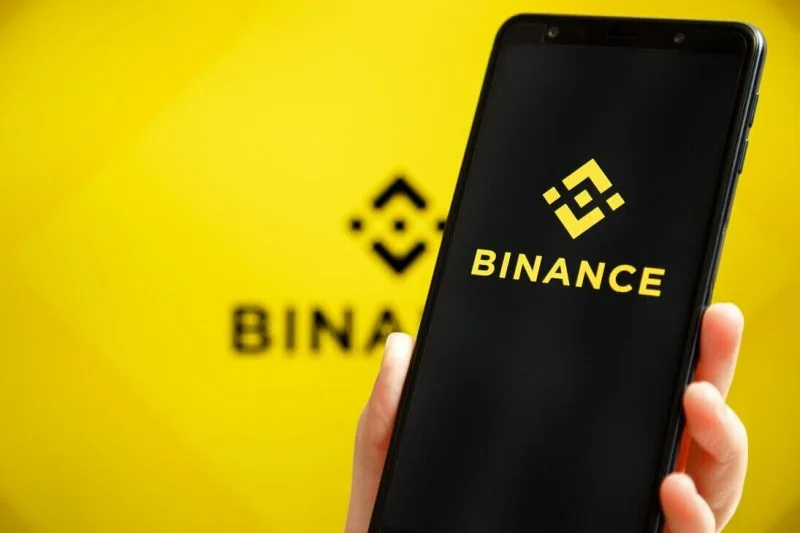Trump's Binance Pardon: Data Shows the Real Winners and Losers
The Tangled Web of Crypto, Crime, and Pardons
The pardon of Changpeng “CZ” Zhao, Binance's founder, by President Trump in October 2025 has reignited a firestorm around the crypto exchange and its role in facilitating illicit financial flows. The White House framed it as ending the “Biden administration’s war on crypto.” But the data paints a far more complex picture. It's not just about political wars; it's about who profits when regulatory lines blur.
The International Consortium of Investigative Journalists (ICIJ) investigation reveals that even after Binance's guilty plea in November 2023 for operating without anti-money laundering safeguards, the exchange continued to process significant transactions linked to criminal enterprises. At least $408 million flowed from the Huione Group, a Cambodian firm tied to Chinese crime gangs involved in human trafficking and scam operations, into Binance accounts while the company was supposedly under court-appointed supervision.
OKX, another major exchange, also saw substantial inflows from Huione, including over $161 million after the U.S. Treasury Department flagged Huione as a “primary money laundering” concern. Ross Delston, an anti-money laundering specialist, aptly summarizes the situation: “If the federal government just told you that this entity is a high risk for money laundering or terrorist financing, you’d be crazy to continue any financial dealings with them.”
The exchanges claim they're working with law enforcement and monitoring suspicious activity. Binance states that crypto technology doesn't allow them to block deposits. OKX says they "took proactive steps to restrict relevant accounts." But the sheer volume of illicit funds moving through these platforms raises questions. Are these measures truly effective, or are they merely window dressing? What’s the actual rate of "suspicious activity" flagged vs. the total volume of transactions? That's the kind of data that would truly illuminate their effectiveness.
The Trump Connection: Coincidence or Calculated Move?
Here’s where the narrative gets particularly murky. Trump's second administration rolled back enforcement actions against several crypto firms and pardoned Zhao. Simultaneously, the Trump family launched its own crypto venture, World Liberty Financial, which, according to 60 Minutes, was supported by Zhao's Binance through "donated software." The suggestion is clear: Zhao helped the Trump family launch a cryptocurrency. ‘This Is Corruption’: ’60 Minutes’ Reports Trump Pardoned Binance Boss After He ‘Enriched’ Crypto Business Tied to Trump Family
This raises serious questions about potential conflicts of interest. Did Zhao’s support for the Trump family's crypto venture influence the pardon? Elizabeth Oyer, a former Pardon Attorney at the Justice Department, put it bluntly: “The influence that money played in securing this pardon is unprecedented.” The Emiratis did the deal because of its “business suitability" but, as Lawrence Lessig, a Harvard Law professor, then told Pelley, “The only reason it makes sense is to ingratiate with the president.”
The data shows a clear timeline: Binance faces scrutiny, Trump's administration softens its stance on crypto, the Trump family enters the crypto market, and Zhao receives a pardon. It's a correlation, not necessarily causation, but a correlation strong enough to warrant deeper scrutiny.

I've looked at hundreds of these kinds of situations, and this particular confluence of events is...unusual, to say the least. What are the odds that this happens by pure chance? I’d put them pretty low.
The Human Cost: Victims Left in the Lurch
Beyond the political and financial maneuvering, there's a human cost. The ICIJ investigation highlights numerous cases of individuals who lost significant sums in crypto scams, with funds often flowing through major exchanges like Binance and OKX. Carrissa Weber, a 58-year-old from Alberta, lost her life savings—more than $25,000—to a task scam. Paul DiLello, a 67-year-old from Albany, N.Y., lost over $150,000 after being approached by a woman on Facebook.
These aren't just numbers; they're lives upended. And while exchanges claim to have compliance programs, the reality is that many victims are left with little or no recourse. As Weber put it, "My case is sitting in a filing cabinet and no one’s doing anything with it."
The FBI estimates that Americans lost $9.3 billion to crypto crimes in 2024, a 67% increase from the previous year. That’s roughly half the amount criminal financier Bernie Madoff collected from investors in his Ponzi scheme over four decades.
The industry touts blockchain's transparency, but the reality is that tracing illicit funds is complex and resource-intensive. Alessio Della Santa, who worked on compliance at Binance until September 2024, said his office was not empowered to do meaningful investigations into suspicious transactions, even after Binance pledged to do better.
The Real Value of a Pardon?
The pardon of Zhao wasn't just a political act; it was a signal. A signal that the U.S. is willing to tolerate a certain level of risk in the crypto space in pursuit of innovation and economic growth. But at what cost?
The data suggests that the real winners are the exchanges themselves, who continue to profit from transaction fees even as illicit funds flow through their platforms. The losers are the victims of scams and the integrity of the financial system. The question now is whether regulators can effectively balance the potential benefits of crypto with the very real risks of financial crime.
